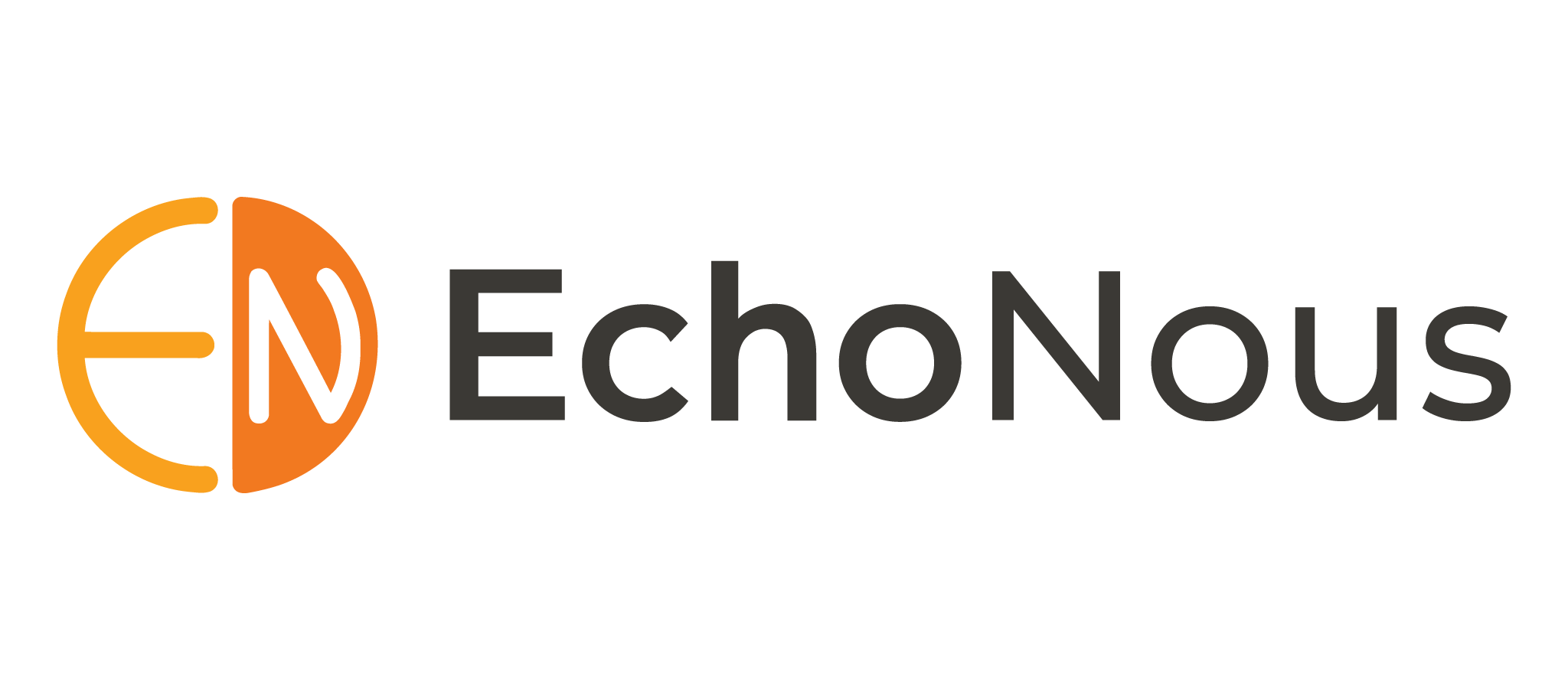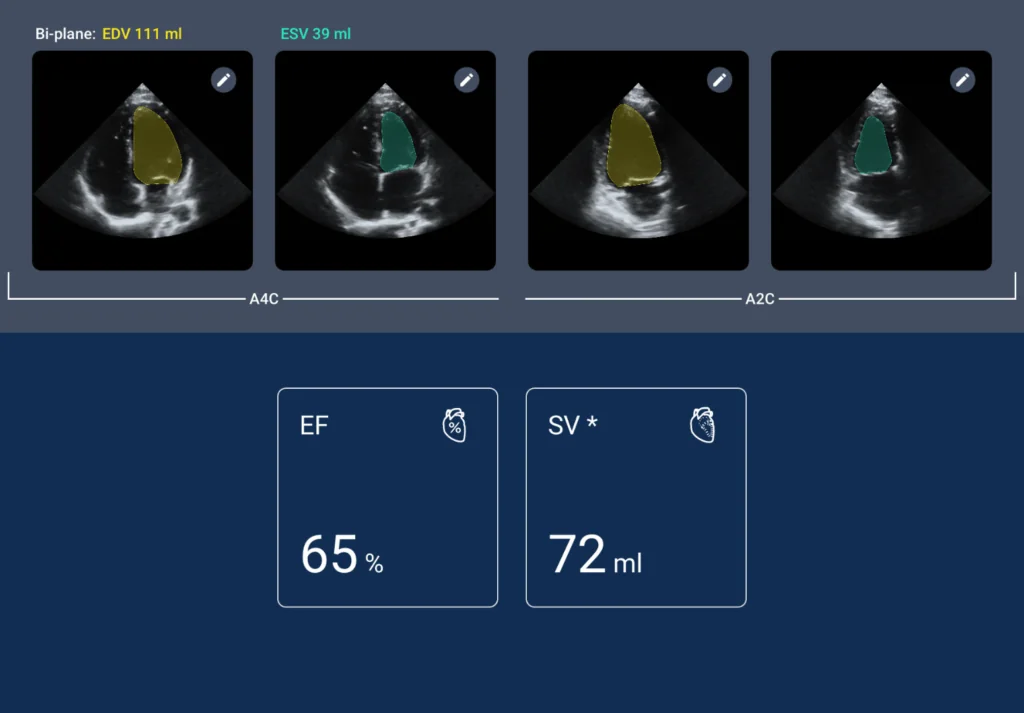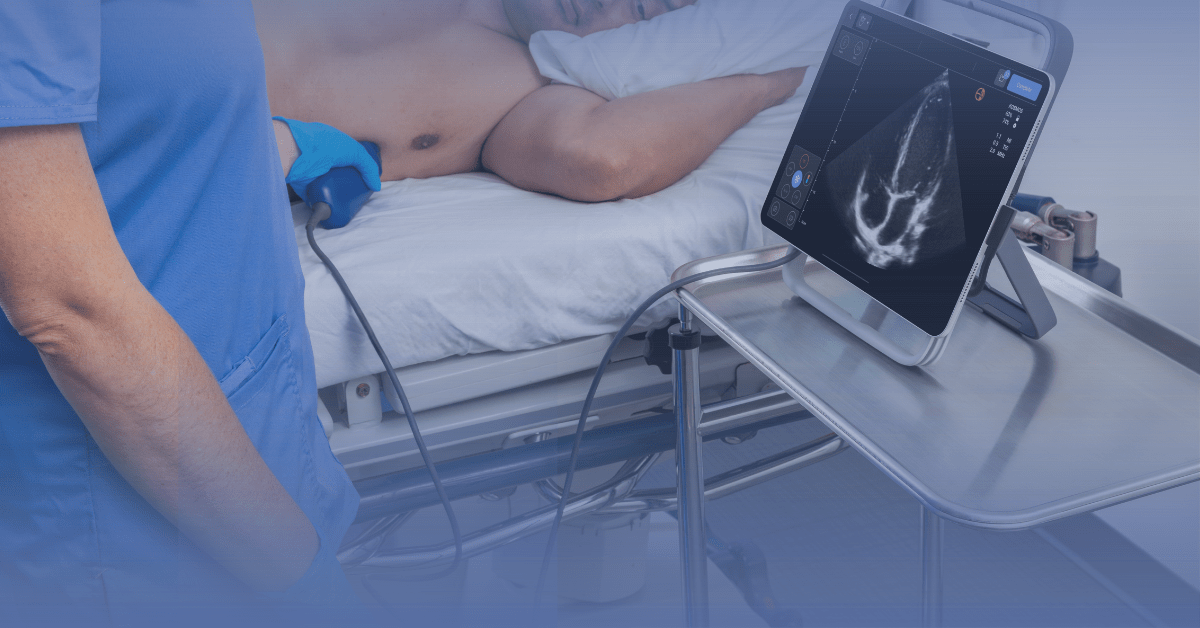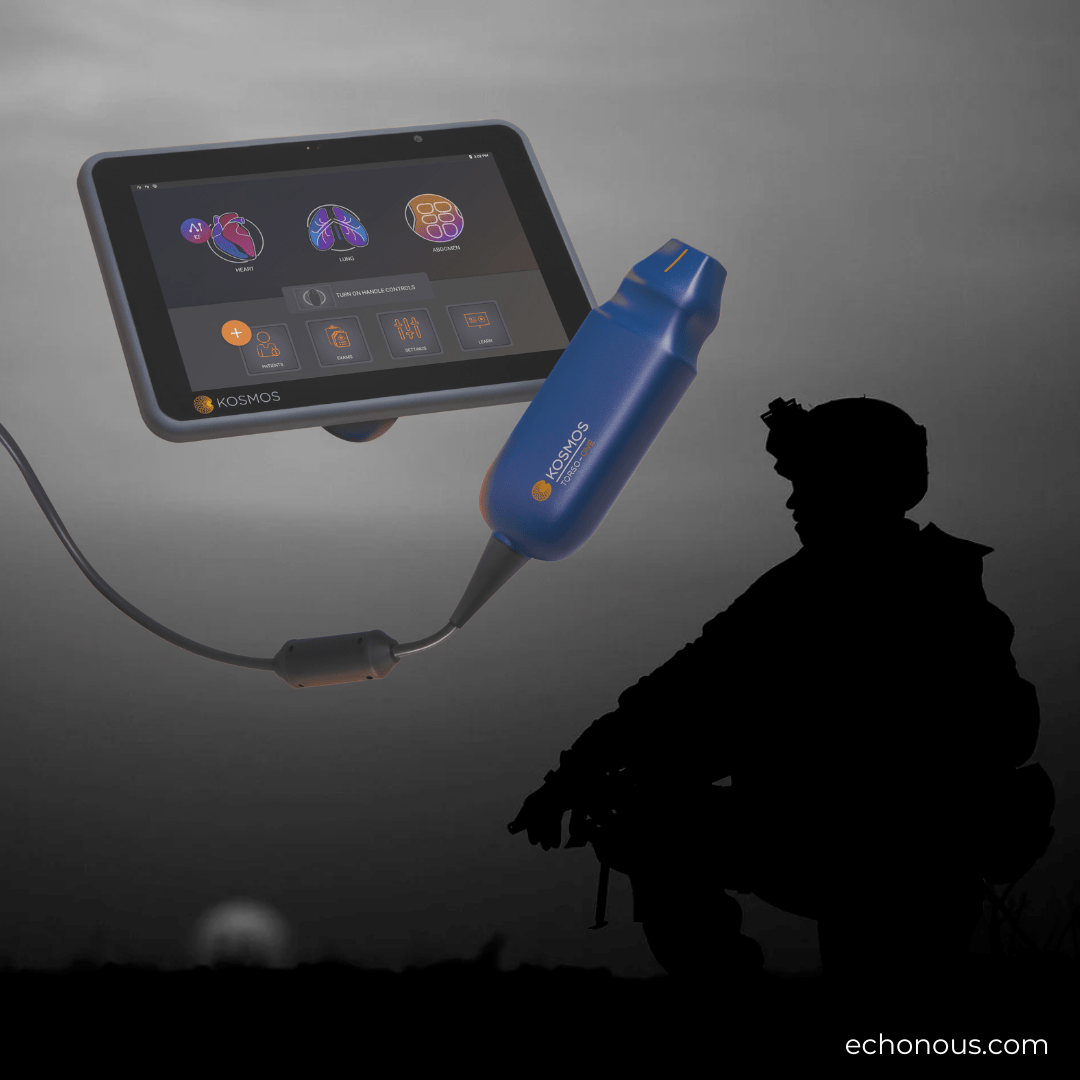Uncovering Disparities:
A Journey to Improving Access to Cardiac Care for American Indian Communities
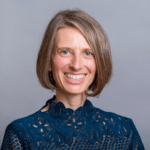
Dr. Sarah de Loizaga
MD
Luke Baldwin, Vice President of Global Marketing at EchoNous, recently connected with Dr. Sarah de Loizaga and learned about a series of advancements she’s leading in pediatric cardiology.
During their conversation, Dr. de Loizaga highlighted the potential of Point-of-Care Ultrasound (POCUS) in broadening access to cardiac screenings, particularly in underserved communities such as the American Indian reservations she serves. Through her efforts, she’s improving patient care and reshaping the landscape of cardiac care delivery, one ultrasound scan at a time.
Meet Dr. Sarah de Loizaga
Dr. Sarah de Loizaga, a Pediatric Cardiologist certified by the American Board of Pediatrics, is actively engaged in patient care and research to address health disparities. She is a member of the Heart Institute at Cincinnati Children’s in Ohio and also serves as an assistant professor at the UC Department of Pediatrics.
Dr. de Loizaga earned her medical degree from the University of Connecticut School of Medicine and completed her Pediatric Residency and Pediatric Cardiology Fellowship at Cincinnati Children’s Hospital Medical. Her research efforts are centered on addressing health disparities for those impacted by heart disease, both locally and internationally, reflected in several published articles highlighting her contributions to these fields.
Task-Shifting in Healthcare Delivery
Through her work with American Indian communities and the healthcare system in Uganda, Dr. de Loizaga has been at the forefront of advancing access to cardiac care through the transformative concept of task-shifting. Task-shifting involves redistributing healthcare tasks from specialized personnel to less specialized healthcare providers, ultimately optimizing resources and widening the reach of essential medical services.
Her recent work focused on integrating echocardiogram screenings, traditionally reserved for specialized sonographers or cardiology-trained providers, into primary care clinics. This initiative addresses pressing disparities in access to cardiac specialty care, especially within American Indian populations and communities in low-resource regions.
“In the US, the people who generally perform echocardiograms are sonographers or cardiology-trained providers. It’s taking the task of obtaining an echocardiogram and shifting it to people who wouldn’t usually do it,” she explained.
Using this concept, she’s embarked on training a diverse cadre of healthcare professionals, including internal medicine doctors, nurse practitioners, and medical assistants, to conduct these screenings. The aim is to improve access to cardiac care and empower primary care providers with the skills they need to detect cardiovascular abnormalities early on.
Despite challenges, including time constraints and logistical hurdles, Dr. de Loizaga’s initiative has yielded significant results. In a recent study among an American Indian community in Arizona, the providers that Dr. de Loizaga trained to “task-shift” were able to screen over 600 patients, with a 6% detection rate of previously undiagnosed heart disease cases.
“We found that we could teach the providers in this program how to conduct the echos,” de Loizaga said. This effort showed that “there are patients out there who have no idea and would not have been captured otherwise without a screening echo.”
Dr. de Loizaga’s pioneering efforts underscore the transformative power of task-shifting in healthcare delivery, offering hope for marginalized communities seeking equitable access to essential medical services.
Expanding Access to Cardiac Screenings with POCUS Technology
Dr. de Loizaga’s work utilizes POCUS technology to redefine the delivery of cardiac care, especially in resource-limited environments.
With a keen focus on addressing healthcare disparities, Dr. de Loizaga leverages POCUS to expand access to cardiac screenings, particularly in underserved communities. Her initiative revolves around making training more accessible and user-friendly, empowering healthcare providers with the skills to operate POCUS systems proficiently.
“[Kosmos] Auto-labeling was well-received. Sometimes, when you put the probe on, you’re unsure what you’re looking at. Having it labeled instantly is reassuring,” Dr. de Loizaga noted as an example of how POCUS technology can streamline the learning process and enhance confidence in obtaining images.
In her efforts to expand access to cardiac screenings, Dr. de Loizaga initiated a comprehensive training program. “We started with online modules via GUSI (The Global Ultrasound Institute) and a two-day hands-on session. We conducted didactic ultrasound sessions during this session, teaching them various views and techniques,” Dr. de Loizaga said. Ultimately, this structured training protocol equipped healthcare providers—some of whom had never used POCUS before—with essential skills.
Despite challenges in adopting POCUS technology, including navigating the learning curve of system operation and image interpretation, Dr. de Loizaga believes there is only room for growth. Currently, she is exploring how AI algorithms can enhance training and interpretation. For example, AI could augment providers’ ability to interpret POCUS images.
Dr. de Loizaga’s unwavering commitment to democratizing access to POCUS technology reflects her dedication to advancing healthcare equity. By empowering healthcare providers with the necessary tools and training, she envisions a future where essential diagnostic services are readily available despite geographical and socioeconomic barriers.
Stay tuned for our upcoming Q&A, in which Dr. de Loizaga shares her insights into the use of POCUS technology to expand access to cardiac screenings in underserved communities. Gain a deeper understanding of her groundbreaking research efforts, innovative approaches to addressing healthcare disparities, and the transformative impact of her work on reshaping the landscape of cardiac care delivery.
To learn more about Kosmos, contact us today!
